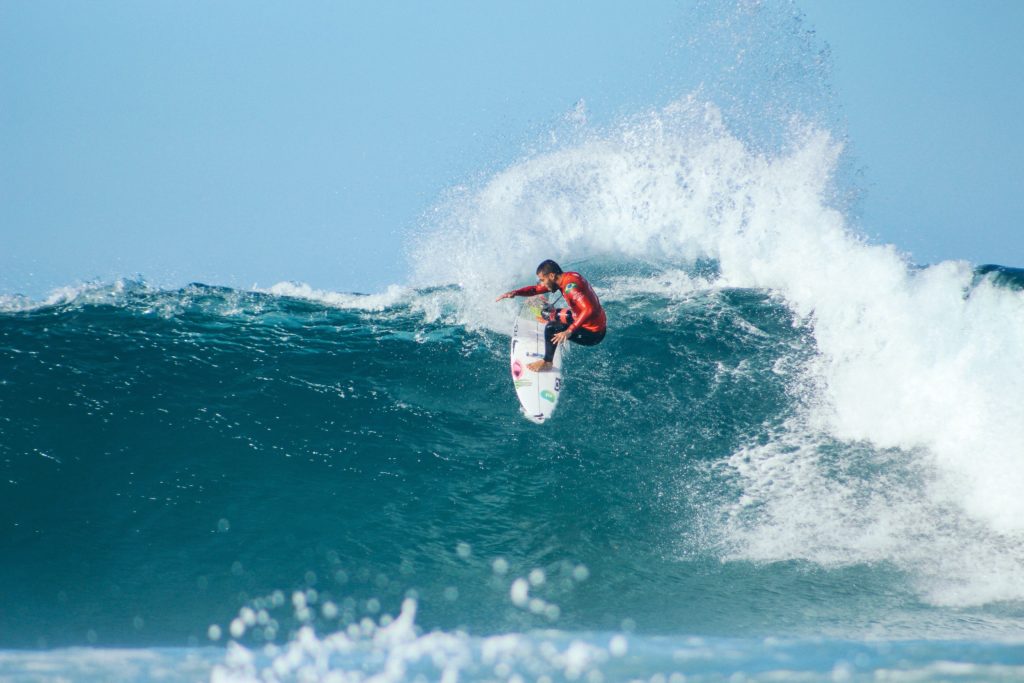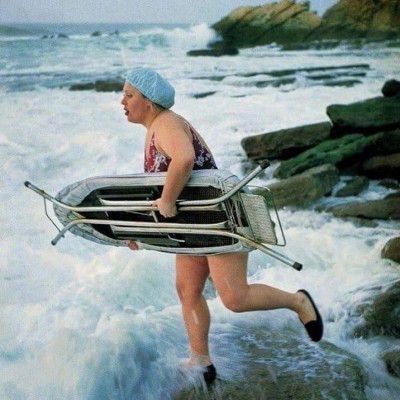Feminist Wave Rider: Trusting Myself, Trusting the Process
By Estelle Cohenny
Estelle Cohenny, also known as Dao to her friends, is an artivist based in Thailand and one of the 18 participants of the first Io Feminist Activist School held last May 2019. She works on migrant rights at the Migrants Assistance Programme Foundation. To encourage our alumni to write for our blog, we sent out a couple of post-training reflection questions. These are Dao’s reflective responses to those questions.
1. How would you describe the overall experience of participating in Io’s Feminist Activist School on Facilitation as Feminist Leadership Praxis? What were the highlights for you personally? What resonated? What struck you as completely new and different?
The overall experience was fantastic. I loved this training. What resonated for me was how rich and multi-layered the content was. This diversity of content meant that participants’ diversity of interests, skills and experiences could be engaged in the learning. It was like coming to a wood workshop, and being shown around the workshop in all its details: from observing sawdust to learning about the tools, marquetry techniques, carpentry tricks, how to keep the account books, and know where the best trees were growing. And then being told, “now it’s your turn, make something. I’ll stand by if you need me.”
2. What have been the most useful insight/s that you have been able to apply in your daily life and/or your experience? Any examples that you can share?
Small changes: Making space (recognising that getting upset by others or reacting to others negatively is a sign I need space and breathe, not a real problem).
Understanding about design process: I had to organise an organisational development (OD) workshop for my organisation to tackle specific problems. I was able to communicate with outside trainers, explain what the organisation needed, and provide the information that trainers needed to design the process. We spent a good chunk of time preparing the workshop, how to present it to staff beforehand, organising the documentation, drawing in interns, and preparing flip charts in 3 languages and created a pre-workshop questionnaire. I never prepared for a workshop this much in the past and I never attended a workshop which had been so prepared either!
Clean feedback and trusting the process: During the OD workshop, I was able to give constructive feedback to the team of trainers on the first day. On the second day, I realised I needed to be a participant to give them the space they needed. That night, we had a debrief with senior staff who was concerned there might not be space for tackling the main issues. After discussing which adaptation might be feasible for the next day’s plan, I was able to encourage everyone to trust the process, because I really felt I trusted it. The next day went very well.
Integrity: The whole workshop was a success for the staff and the trainers. And I think that the reason for this success was that the tools used, the workshop process, and resources people embodied and applied to what the workshop was trying to help participants discover for themselves: the role of communication in cultivating the inter-cultural nature of the organisation.
3. How are you doing and feeling these days?
At first I felt exhilarated by when I tried to use new tools from the training and saw that it really did work…

…but then there were other times where I realised that I still had a lot to learn or that it was not that easy. It felt like this:

Now I feel I can trust the process. I understand how what we learned relates to everyday life and work, and that it is a matter of TIME. I’m writing ‘time’ in big letters because it’s not the kind of time that is counted in hours by a clock which goes on without us. It’s the kind of time that compost takes, that practice takes. The simple on-going learning that is deeply invigorating but takes effort. That kind of time. When I practice, I see results. When I don’t practice it unravels. But I feel I’m getting fitter and have more stamina!
4. What are three qualities in yourself that have been enhanced through this training? Any examples of how these qualities show up in your life?
I feel better about my work because I am more able to contribute to the organisation’s well-being.
Because I let myself take a break in the day, I’m more present at work and at home. I can listen more empathetically. It is easier to connect with others. I can say what I need in a calmer way. I let myself do what I feel I have to do not because I know what the end destination is, but because the next step in front of me is the step that needs to be taken. This is helping me solve a few personal dilemmas and gain confidence in the future.
Right now, I’m revisiting the session on the three kinds of brains. I’m visualising my reptilian brain as a dragon and when the heat goes up, I imagine myself patting its snout to let it know it’s alright, no need to fire up. I must say it helps with hot flushes!
About the Author
Estelle Cohennny’s portfolio can be viewed at www.estellecohenny.com
